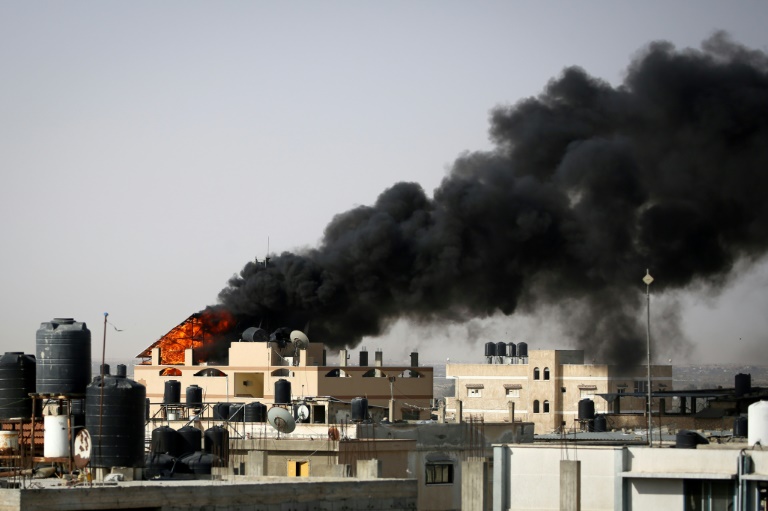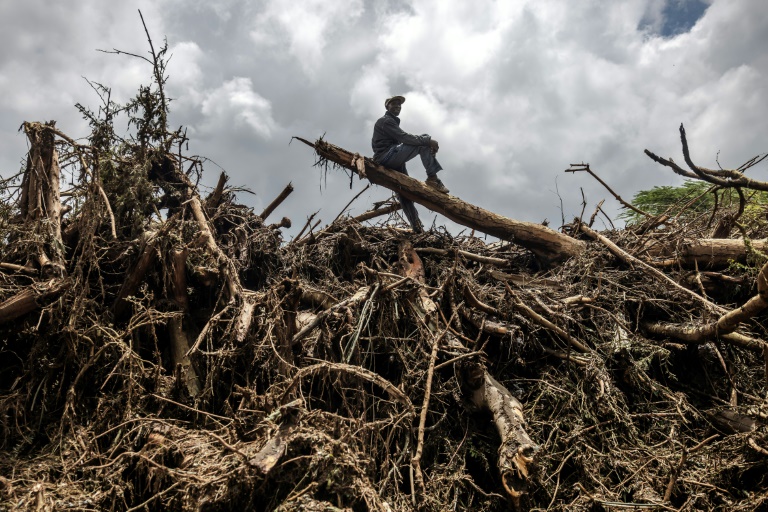The United States issued Friday a stunning criticism of Israel’s use of American weapons in the Gaza war, after Israeli forces intensified operations around the southern city of Rafah, where more than a million displaced people are sheltering.
Israel’s main international ally said it was “reasonable to assess” that Israel has used weapons in ways inconsistent with international humanitarian law during the seven-month war, but said it could not reach “conclusive findings” and stopped short of blocking shipments.
Relations between the two allies sunk earlier in the week after US President Joe Biden threatened to halt some arms deliveries if Israel went ahead with a full-scale assault on Rafah threatened by Prime Minister Benjamin Netanyahu.
The US has warned that the reputational damage Israel will suffer if it storms a city where an estimated 1.4 million civilians are sheltering will far outweigh any possible military gain.
UN chief Antonio Guterres said Friday that Gaza risked an “epic humanitarian disaster” if Israel launched a full-scale ground operation in Rafah, while France urged Israel to cease its operations in Rafah “without delay”.
The Israeli premier has said repeatedly that Israel cannot defeat Hamas and eliminate any possibility of the militant group repeating its bloody October 7 attack without sending ground troops into Rafah in search of remaining Hamas fighters.
Netanyahu struck a defiant tone on Thursday, vowing: “If we have to stand alone, we will stand alone.”
The White House renewed its opposition Friday but said it saw no major operation yet against the city.
“We’re obviously watching it with concern, of course, but I wouldn’t go so far as to say what we’ve seen here in the last 24 hours connotes or indicates a broad, large (or) major ground operation,” National Security Council spokesman John Kirby told reporters.
Earlier this week, Israeli ground troops seized eastern areas of the city, including the Palestinian side of the Rafah border crossing between Egypt and Gaza, but they have yet to enter its main built-up area.
AFP journalists witnessed artillery strikes on the city Friday and the Israeli army said operations were continuing in the east of the city.
The war began with Hamas’s unprecedented October 7 attack on Israel, which resulted in the deaths of more than 1,170 people, mostly civilians, according to an AFP tally of Israeli official figures.
Israel’s retaliatory offensive has killed at least 34,943 people in Gaza, mostly women and children, according to the Hamas-run territory’s health ministry.
Israel’s military operations around Rafah have already had a severe impact on Gaza civilians, UN agencies said.
More than 100,000 people, many of them already displaced from other areas of Gaza, have fled Rafah this week, the United Nations said.
Many have returned to the city of Khan Yunis, where intense fighting raged earlier this year, or are crowded into shelters along the coast in the central town of Deir al-Balah.
Displaced civilian Malek al-Zaza said he had found “no food” and “no water” in central Gaza’s Nuseirat refugee camp.
“No one is asking about us, no one is looking for us… We only have God looking out for us,” he said.
The Rafah crossing, which Israeli troops closed on Tuesday, is the only one normally used for deliveries of fuel, and the United Nations said the resulting exhaustion of stocks inside Gaza had effectively halted aid agency operations.
COGAT, the Israeli defence ministry body responsible for Palestinian civil affairs, said it had delivered 200,000 litres of fuel to Gaza on Friday using a different crossing.
That is the quantity the United Nations says is needed every day to keep aid trucks moving and hospital generators working.
The Israeli army said four soldiers were killed on Friday when an “explosive device” went off near a school in Gaza City.
The deaths took to 271 the Israeli military’s losses in the Gaza campaign since the start of its ground offensive on October 27.
The army said rocket fire from Gaza had wounded an Israeli civilian in the southern city of Beersheba. It was the first time since December that the city had come under Palestinian rocket attack.
Israeli and Hamas negotiating teams left Cairo on Thursday after what Egypt called a “two-day round” of indirect negotiations on the terms of a Gaza truce.
Hamas said that Israel’s rejection of a truce plan submitted by mediators at the talks had sent the negotiations back to “square one”.
In New York, the UN General Assembly voted overwhelmingly Friday in support of a Palestinian bid for full membership of the world body, a symbolic move after the United States vetoed the measure in the Security Council.
The resolution, which states that the Palestinians should be admitted to the UN and grants them some additional rights as observers, received 143 votes for, nine against and 25 abstentions.
The West Bank-based Palestinian Authority said the UN vote showed Palestine “deserves full membership”.
Israeli Foreign Minister Israel Katz said it sent the message to Hamas that “violence pays off”.
AFP
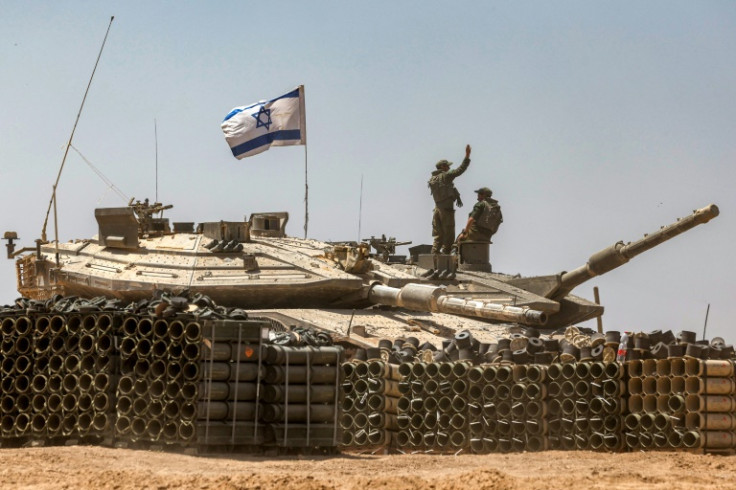
AFP

AFP
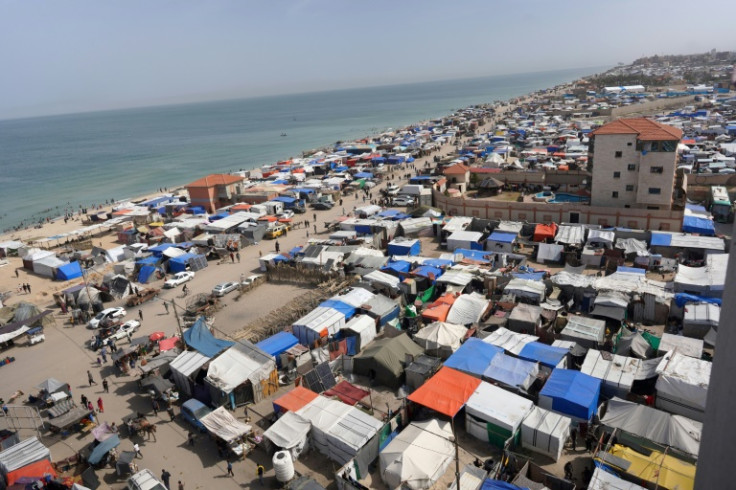
AFP
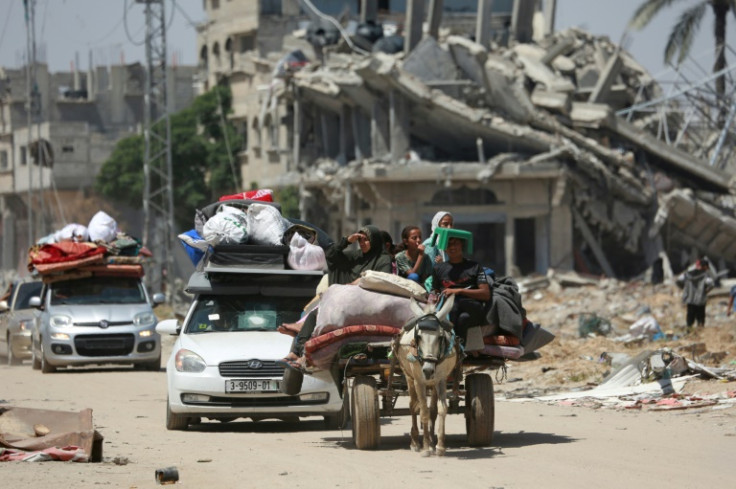
AFP

